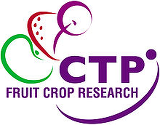Reference: CTP_FCR_2020_2
Supervisors: Prof Xiangming Xu (NIAB EMR), Dr Michelle Fountain (NIAB EMR), Dr Corinne Whitby (University of Essex)
This student will be registered with the University of Essex. Beginning in October 2020, the successful candidate should have (or expect to have) an Honours Degree (or equivalent) with a minimum of 2.1, in Agricultural Science, Plant Science, Soil Science or other related science subjects.
Background
The use of living mulch in orchard fruit crops is receiving increasing attention. Living mulch has the potential to improve previous weed management significantly by incorporating conservation biocontrol (providing refuges for key natural enemies), carbon sequestration, microbial-driven nutrient cycling (carbon/nitrogen), and overall soil health. However, how to maximize the potential benefits of these cover crops while minimising the efforts required to manage them is not yet clear.
Objectives and approaches
The student will evaluate several candidate cover plant species in monoculture and mixtures in orchards, with specific emphasis on conservation biocontrol and soil health in terms of nutrient cycling, particularly the abundance and diversity of key microbial groups important to plant growth (e.g. microbial carbon/nitrogen transformations, plant growth promoting rhizobacteria, mycorrhizal fungi). In addition to laboratory research, a new apple orchard will be planted, specifically designed to study the use of candidate plant species as living mulch.
The exact research contents over the four-year period may change in response to emerging novel research findings, but the following aspects will be covered:
- Population dynamics of cover crops in relation to depletion of soil nutrients and climatic conditions; this will have implications on cover crop management, carbon sequestration, and availability of nutrients to fruit crops.
- Assess dynamics of key natural enemies for apple (and strawberry pests) in relation to crop development stage and pest dynamics; we may characterise plant-associated volatiles to understand the nature of the observed population dynamics of natural enemies and the ability of plants to deter or attract specific organisms.
- Characterising soil microbiota with the emphasis on those microbes associated with nutrient cycling (carbon, nitrogen), and the relationship of these microbes (and their activities) with plant/tree growth.
Training
The successful candidate will gain a wide range of experience in orchard crop management, soil science, conservation biocontrol, and microbial ecology, including statistical analyses and bioinformatics.
Application
Anyone interested should return the application and equal opportunities forms to recruitmentctp@emr.ac.uk citing the reference before the deadline of 28th February 2020.
For this specific studentship, we may consider other students not eligible for Research Council funding; however, the candidate must be able to pay additional tuition fees charged by the University of Essex.
Contact Prof Xiangming Xu (xiangming.xu@emr.ac.uk) for an informal discussion.
